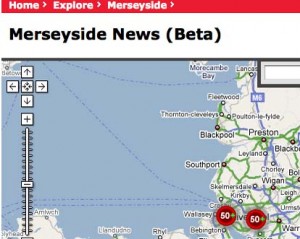We give developers the opportunity to tell us journalists why we should sit up and pay attention to the sites and devices they are working on. Today it’s flat-packed news websites ready for easy assembly and use from Instant Journalist.

1. Who are you and what’s it all about?
I’m Scott Durham, president of Instivate. We’re a small software company in Seattle, Washington building a flexible, scalable platform for powering online communities.
Our first product is Instant Journalist, which makes it easy for anyone to launch their own online news communities where the public can read and contribute news stories and events of local interest with rich media such as video, images, and documents.
2. Why would this be useful to a journalist?
Since anyone can join and submit content to a site powered by Instant Journalist, it allows the site to cover a much wider range of news events than an individual or team of journalists could do alone.
We have an advanced set of content rating tools, automated algorithms, and editorial controls that makes it easy for the site owner to manage the content from thousands of individual contributors, and make sure that the best content rises to the top of the heap.
In addition, we have a variety of features that aren’t available in traditional blogging or other content management systems.
One key strength is that our product comes with native support for video. That makes it easy for anyone to upload video of a news event and make it available to readers of the site. Our system handles all the complexity of video processing and conversion behind the scenes, and then allows playback on any web browser.
Another key feature includes our integrated mapping technology, where any story can be placed on a map and assigned to a specific geographical neighbourhood, town, or city.
This allows users to quickly visualise the location of a news event and browse and discover other content in that specific area. Users can also subscribe to RSS feeds for specific geographic locations and track the news around them at a very local level.
3. Is this it, or is there more to come?
Our major focus now is the delivery of a self-service advertising solution that will make it easy for site owners to monetise their site.
It will allow any advertiser to easily sign-up and create ads for the site. Also stay tuned as we roll out more advanced content management features and more interactive ways of reporting news events on the site.
4. Why are you doing this?
We’re passionate about building systems that make it easy for people to participate in and contribute to communities of like-minded people online.
We picked the news space as our first project because there’s a huge opportunity there to empower professional journalists and regular members of the public to collaborate online and cover a much wider range of news than has ever been possible before.
5. What does it cost to use it?
We have a range of packages that scale up according to the amount of traffic a site serves, starting at just $18 a month.
It’s designed so that a site can start small, with pricing that grows as the site does and at a very affordable rate.
6. How will you make it pay?
Our content management system makes it easy for site owners to plug any 3rd-party advertising solution into their site, such as Google ads, etc. And our forthcoming self-service advertising solution will take that to the next level by allowing access to a wider range of potential advertisers, and providing the site owner a higher percentage of overall revenue than other 3rd party online advertising solutions.
Have a look at Centraldistrictnews.com – it covers a neighbourhood here in Seattle and allows people to communicate with their neighbours about the news that happens right around them.
We’re also working with a major newspaper company to adapt our platform to a wide range of less newsy applications; covering topics from travel to sports and local dining we’re allowing them to quickly deploy niche interest sites and other targeted online communities that will build a rich online ecosystem of websites around their existing newspaper brands.

